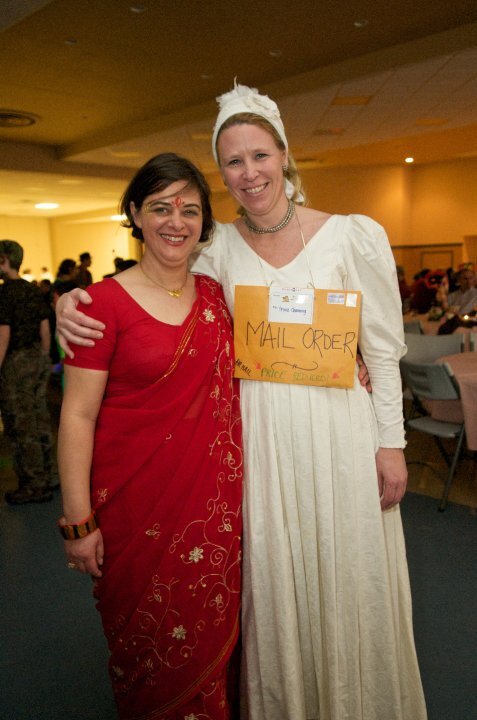Mail Order Bride
Nina Lichtenstein
Word Count 291
The second time I wore my wedding dress, I was about to get divorced.
Twenty-three years had passed since I’d uttered the traditional Hebrew words “Ani le dodi, ve dodi li”–I am my beloved’s and my beloved is mine—under the huppah while my Norwegian non-Jewish parents took in all the unfamiliar rituals. My mother bought the full length, Laura Ashley cotton brocade dress in London, where it cost a few hundred dollars less than in Oslo, and carried it in her hand luggage to New York.
On the eve of my divorce, I decided the wedding dress would be my costume for the annual Purim carnival in our synagogue. To my surprise, I was able to zip up the dress I hadn’t fit into since I was twenty-three. For the first time in my life I had forgotten to eat regular meals, and instead numbed myself with Xanax, Ambien, and Scotch. So there I was, as slender as I had been on my wedding day, except now my heart was broken.
My friends exclaimed, “You look great!” My appearance was inversely proportionate to my emotional state; I had never felt worse. I scribbled “Mail Order Bride” on a large manila envelope and hung it around my neck with a string, preferring the detached expression of irony to the true emotions of grief.
Shortly after my divorce was final, I donated the dress to a local second-hand store. Perhaps a bride-to-be loved it and made it part of her journey. Or maybe a theater troupe bought it for a play. Either way, my wedding dress had become a witness to the human spectacle of life: the beginnings, the ends, and every drama in between.
Nina is a writer, teacher and storyteller, born and raised in Oslo, Norway. Her work has appeared in the HuffPost, Brevity, Lilith, The Washington Post and Tablet, among other places.
